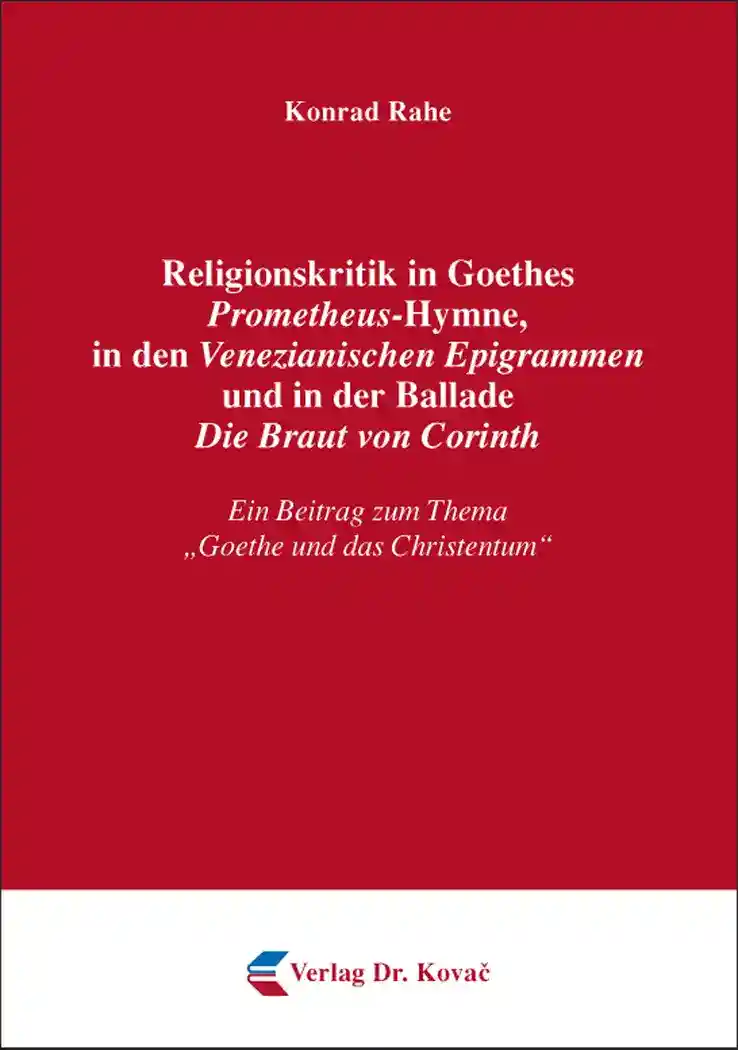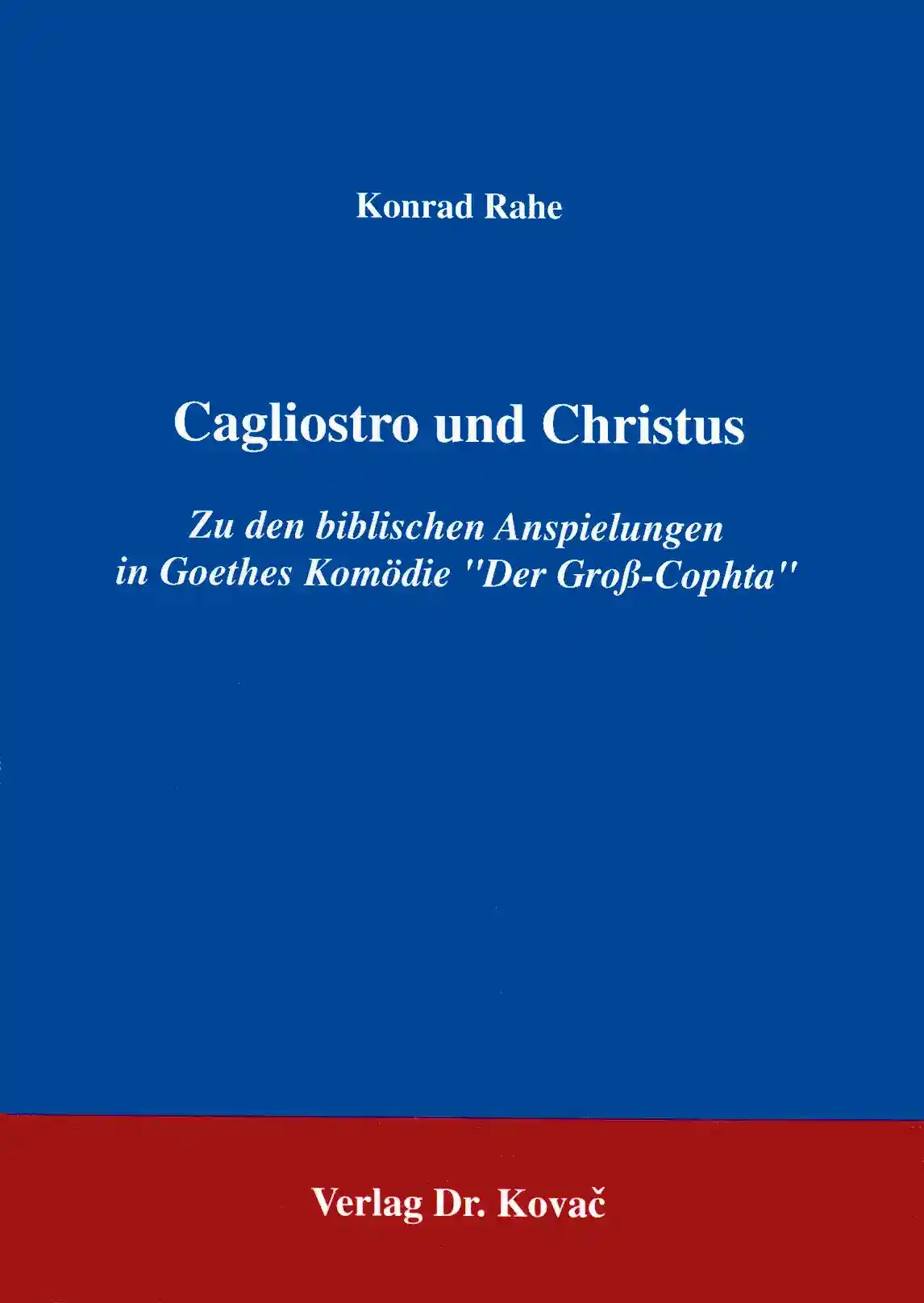Konrad RaheReligionskritik in Goethes Prometheus-Hymne, in den Venezianischen Epigrammen und in der Ballade Die Braut von Corinth
Ein Beitrag zum Thema „Goethe und das Christentum“
Studien zur Kirchengeschichte, volume 22
Hamburg 2014, 436 pages
ISBN 978-3-8300-8132-6 (print)
ISBN 978-3-339-08132-2 (eBook)
Rezension
[…] Ihr [der Arbeit] großer Wert liegt besonders in der Auflösung zahlreicher Anspielungen. Einige Epigramme werden hier zum ersten Mal überzeugend interpretiert. Insgesamt bringt Rahe den unbequemen, angriffslustigen Goethe besser zur Geltung. Man lernt einen Dichter kennen, der seine Gegnerschaft zum Christentum literarisch produktiv zu machen weiß. Die Arbeit regt dazu an, genauer zu erforschen, wie sich Goethes Religionsauffassung in seiner Dichtung bemerkbar macht.
About this book deutschenglish
Until now there has not been a comprehensive study of “Goethe and Christianity” taking into account and describing all the research literature on the subject. This is a hitherto missing overview of the arguments which have been forwarded since 1775 attempting to prove his paganism or his Christianity. Goethe’s own statements about his paganism are collected and outlined here for the first time. This study attempts to describe the attitudes towards Christianity of the greatest German poet as reflected in his poems in the various phases of his life. The Römische Elegien (Roman Elegies), the Venezianische Epigramme (Venetian Epigrams) and the Braut von Corinth (The Bride of Corinth) have long been regarded as his “most pagan” works, and his poem Prometheus is regarded as his most significant work critical of religion. This poem (1773) confronts us with the paradox of Goethe using Greek mythology to strike a blow to Christianity. Subsequently, the study examines the use of religious language to criticize religion itself before determining the “setting in life” of the poem and explaining why Prometheus was justified (beyond mere defiance) in his self-confident speech. In a separate section, the topic of theodicy is examined, followed by the question of which view of Christianity is reflected in the 170 Venezianische Epigramme of 1790. First, Goethe’s reception of Antiquity is outlined, and then his criticism of Christianity (as formulated in the Venezianische Epigramme) is comprehensively discussed. A closer examination of the ballad Die Braut von Corinth (1797) presents in detail how Goethe criticizes the body hostility of Christianity and demonstrates the degree to which this ballad may be seen as a response to the apostle Paul’s first Epistle to the Corinthians. In Goethe’s works examined here, consideration is taken of all his Bible adaptations. It is thus a study which contributes to the history and impact of the Bible.Keywords
AntikeBibelChristentumDie Braut von CorinthGermanistikGriechische MythologieHeidentumJohann Wolfgang von GoetheMythologiePrometheus-HymneSexualitätTheologieVenezianische EpigrammeYour book at Dr. Kovač Publishing House
We publish your scientific work >>
Weiteres Buch des Autors
Zu den biblischen Anspielungen in Goethes Komödie „Der Groß-Cophta“
Hamburg 1994, ISBN 978-3-86064-194-1 (Print)

